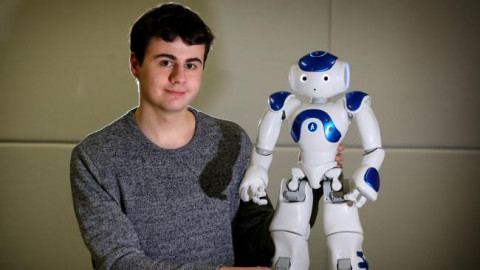
People on the autism spectrum may be an undervalued resource who get overlooked in the competitive jobs market but they also could be the key to filling unmet demand in vital sectors, including information technology and science-related positions.
Researchers in the US have found that people with autism may have above average systemising skills and naturally gravitate towards jobs in science and technology.
But they also can find it difficult to get work, leaving a largely untapped set of people on the spectrum who could help fill skill shortages in key science, technology, engineering and maths roles.
Enter DXC Dandelion, a program that is giving people with autism four weeks of fully paid internships. The program was trialled at the University of South Australia last year and this year has been rolled out in Canberra across its three main tertiary institutions.
Under the program, students identified as autistic who are studying IT or systems engineering are invited to enter a preselection program from which the most motivated, committed and talented are offered paid internships with DXC — formerly Hewlett Packard — and participating government departments.
“There is obviously high unemployment among people with autism and so we put them through a preselection process to work out how motivated they are,” DXC Dandelion’s program executive Michael Fieldhouse said. With 30 autistic employees in Canberra alone, the program not only opened doors to students with autism but gave DXC first dibs on talented individuals who might otherwise be overlooked, he said.
Nick Klomp, deputy vice-chancellor (academic) at the University of Canberra, said five students originally were identified for the initial workshop with one selected for an internship.
Interns from University of Canberra, Australian National University and Canberra Institute of Technology worked with Caroline Chisholm School for autistic students to program a robot that met identified needs of the students and school.
Among the interns was Stephen Hancock, 20, who is studying a certificate III in IT at CIT.
Mr Hancock said he enjoyed working as a team on programming the robot. “We programmed it to do a bunch of different games and also for stress relief and emotional management,” Mr Hancock said.
“It was really about giving people with Asperger’s experience in a corporate environment.”
Professor Klomp said he was delighted by the program.
“It’s kind of obvious — students on the autism spectrum will often have talents that go unrecognised because of the social challenges and so on.
“So what a waste if you can’t harvest those talents which are often on the technical side,” Professor Klomp said.